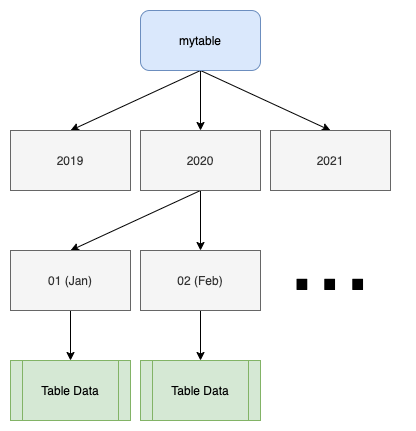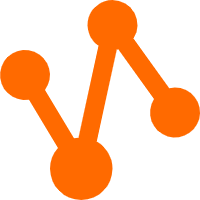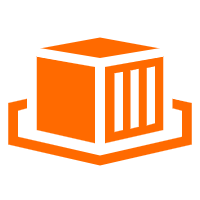By Jeremy Pedersen
Welcome back for the 12th installment in our weekly Q&A blog series! In this week's column, we'll take a look at questions from trainings past. Read on.
Excellent question. Elastic Compute Service (ECS) is Alibaba Cloud's virtual machine service. You can use it to run Windows, Linux, or BSD virtual machines. Elastic Container Instance (ECI) is one of Alibaba Cloud's container services (the other being Alibaba Cloud Container Service for Kubernetes (ASK). ECI lets you run Docker containers.
Of course, you could just install Docker on an ECS instance, so why use ECI? Because ECI frees you from actually launching and maintaining ECS instances, there's less work involved in running Docker containers on ECI: launching and management of the underlying VMs that run your Docker containers is done for you. The instances that ECI uses are also optimized to run containers, so you get solid performance. Also, since it's a Pay-As-You-Go service, you can scale up or down as much as needed without worrying about the underlying infrastructure.
First, make sure you understand how to manage manually created workflows.
Once you've understood that, you'll need to learn how to use the CreateManualDag API call to trigger the workflow. Unfortunately the only documentation on that is here in Chinese, but we do have an OpenAPI example in English, here. That link is for a Python example, but there are also examples in other languages.
No, we don't have a purpose-built product that acts as a "decoy" or "honeypot" to draw in attack traffic. That's a cool idea though!
It's pretty straightforward, actually. Just take a look at this list of KMS service endpoints. Each Alibaba Cloud region has both a public (Internet) endpoint and a VPC endpoint. If you want to access KMS without having your traffic cross the Internet, simply use the VPC endpoint for your region, and you're good to go!
Short answer: No.
You upload HTTPS certificates directly to WAF as explained here. Unfortunately there's no way to specify a user-managed KMS key for use with certificates upload to WAF.
I'm going to interpret "column-oriented" pretty widely here to mean "database which is suitable for OLAP queries", but even so I'll leave out PostgreSQL and MySQL based products (even when designed for OLAP), though we do have quite a few of those...
Looking just at databases designed for "big data" use-cases, we have:
You should also take a look at the full list of databases to get an idea what else Alibaba Cloud offers.
If we assume that we're talking about the hierarchical database model where records have children and parents, then the answer is no. MaxCompute tables are simple 2D structures composed of rows and columns of standard data types like string or int. A flat table structure is used, and elements do not have parent-child relationships.
You can sort and search records in a hierarchical way though, by defining one or more partition keys for a table. This essentially breaks the data in the table into groups based on the partition keys. For instance, if you had a table mytable partitioned by month and year, you could scan just the records from January 2021 with a query like:
SELECT * FROM mytable WHERE year=2021 AND month=01;The month and year partition keys would give the table a structure like this:

When the query is run, only the data from the matching "folders" (partitions) needs to be read from disk.
For workflows, there are some basic features to help you recover from an unwanted change or update to the code. If you are using DataWorks in Standard mode rather then Basic mode, then you can force all submitted workflows to pass mandatory code review before deployment into the production MaxCompute project. This page explains the difference between Standard mode and Basic mode.
You can also recover deleted nodes from a workflow, using the recycle bin.
MaxCompute tables can be reverted to earlier versions or recovered after a DROP operation has been executed on them. You can do this using the restore table operation, which unfortunately only seems to be documented in Chinese, here. Google Chrome's Translate tool should help you understand the document though, if you don't read Chinese.
This is a very hard question to answer because there are so many ways to do this. One way would be to implement it yourself, using PAI. Another way would be to work with Alibaba to implement something like Quick Audience (Chinese), which is a managed platform designed to do exactly that.
You can run Python 2 and 3 jobs, Spark jobs, and even good old MapReduce jobs!
Great! Reach out to me at jierui.pjr@alibabacloud.com and I'll do my best to answer in a future Friday Q&A blog.
You can also follow the Alibaba Cloud Academy LinkedIn Page. We'll re-post these blogs there each Friday.
Friday Blog - Week 13 - Bird or Plane? Classifying Images With TensorFlow
JDP - March 26, 2021
JDP - May 7, 2021
JDP - April 9, 2021
JDP - April 30, 2021
JDP - June 4, 2021
JDP - July 9, 2021
 DataWorks
DataWorks
A secure environment for offline data development, with powerful Open APIs, to create an ecosystem for redevelopment.
Learn More MaxCompute
MaxCompute
Conduct large-scale data warehousing with MaxCompute
Learn More Elastic Container Instance
Elastic Container Instance
An agile and secure serverless container instance service.
Learn More WAF(Web Application Firewall)
WAF(Web Application Firewall)
A cloud firewall service utilizing big data capabilities to protect against web-based attacks
Learn MoreMore Posts by JDP